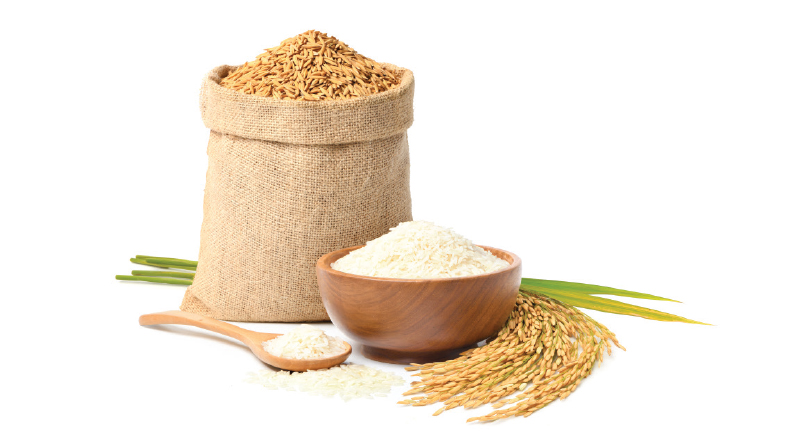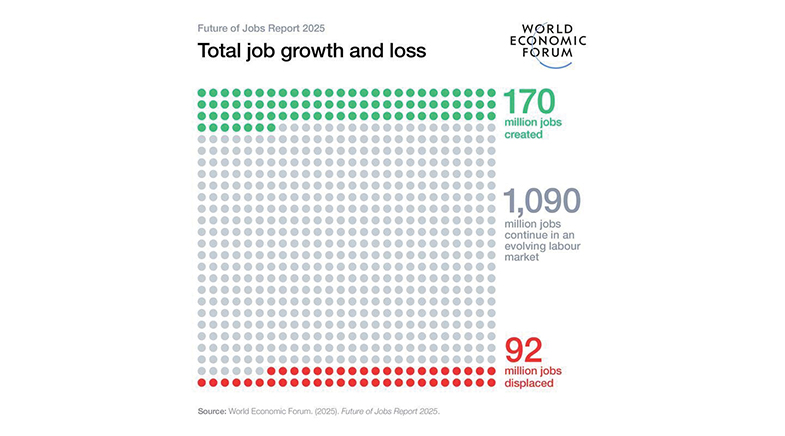Tomorrow's tools
-
- from Shaastra :: vol 04 issue 06 :: Jul 2025

For better testing, nanomaterial membranes, and good air.
AYUKRIYAM INNOVATIONS
Founder: Ravikrishnan Elangovan
Year: 2024
Big idea: AI-assisted automated diagnostics platform
The idea took shape at a lab in the Indian Institute of Technology (IIT) Delhi. Professor Ravikrishnan Elangovan was part of a group studying molecular motors and looking at more accurate optical methods to examine molecular phenomena. Hoping to build something specifically relevant to India, the team created a diagnostic tool using magnetic-particle-based enrichment technology for detecting typhoid cells. It formed a start-up, but the venture later shut down because of delays in commercialising the technology.

Elangovan's brush with medical devices led him to set up Ayukriyam Innovations, a spin-off from the Molecular Imaging & Diagnostics Lab at IIT Delhi. The start-up uses automated artificial intelligence (AI)-assisted disease diagnosis to improve diagnostic workflows. The company is developing an automated sample preparation platform and cartridge-based point-of-care solutions. The platforms cover a range of molecular assays, including antimicrobial resistance detection, says Elangovan, who did his Master's in Biotechnology from IIT Delhi and earned a PhD in Biophysics from Italy before becoming a faculty member at his alma mater.
Fortunately for him, the regulatory process for medical devices became clearer as the sector developed. He plans to develop diagnostic solutions targeting smaller hospitals and standalone diagnostic laboratories in Tier-1 cities, where the lack of trained personnel often results in inaccurate test results. According to Elangovan, the venture started by working on solutions supported by the Indian Council of Medical Research for diagnosing tuberculosis and cervical cancer, two widely prevalent problems. Ayukriyam Innovations came up with a manual microscopy solution, but the data failed when it was sent for multi-centre evaluation because of factors such as the multiple-step sample preparation process, lack of quality control while preparing the sample, long analysis time, and human fatigue. To overcome these drawbacks, Ayukriyam developed an automated sample preparation solution (Autostain) and an automated slide scanner (Autoscope), which substantially reduce human intervention and thus improve the quality of diagnosis. The images are digitised, and the company uses AI-based classification algorithms to identify and classify the cells; he says the results came out promptly and were highly accurate.
Ayukriyam worked with hospitals to validate the technology. The products have been built and await regulatory approval before being commercially launched. Similar technologies are available, but most are imported and expensive. Ayukriyam plans to offer its diagnostic solutions through cheaper subscriptions to smaller hospitals and diagnostic labs. "We will be replacing manual technology, which is error-prone... Our solutions can be easily deployed and are automated, thanks to which you do not need high capital expenditure and trained manpower," says Elangovan.
VIMANO EWA
Founders: Murari R. and Nagesh Kini
Year: 2018
Big idea: An advanced materials start-up building membranes for different applications
As a materials scientist in the U.S., Murari R. had worked on technologies that integrate advanced materials onto devices for multiple uses. Murari, who did his Master's from the University of Pennsylvania, knew Nagesh Kini, a PhD in Materials Science from the Indian Institute of Science with a corporate and research background. The two came together to set up Vimano, which is developing membranes to be used in electrochemical devices for energy storage and distribution, as well as thermal management. Vimano — 'vi' from viriya in Sanskrit for energy, 'ma' from materials and 'no' from nanotechnology — has developed a proprietary ion-selective membrane platform for multiple uses, including thermal management in satellites and in-flow batteries.

Vimano, which recently raised its first institutional equity funding, has set up a laboratory for research and a mini-production facility. Initially, Murari and Kini planned to focus on flow batteries but soon realised the features of the membranes would help in other sectors, such as hydrogen production and satellite thermal management. They pivoted from a product-focused technology to a platform-focused one. They are at different technology readiness levels (TRLs) for diverse sectors; the highest TRL is for space thermal management in satellites. The company will supply a leading space and satellite-launching organisation with membranes to be used on the outer layers of satellites as a heat shield. Vimano is working closely with this organisation and supplied a few hundred batches before the order was placed.
The membranes are made of polymers and nanomaterials. Their thickness will be between 15 and 50 microns and can go up to 100 microns. Over the past four years, Vimano has been making membranes of larger dimensions and can now make membranes measuring 0.5 m x 0.5 m. Their production capacity is one membrane a day, and since their partners want at least 100 pieces a day, the company has to set up a larger laboratory and production facility.
According to Murari, apart from global multinationals such as DuPont, a handful of start-ups in the U.S. and Canada can make these membranes and have received substantial funding from venture capitalists. He reckons Vimano is the only Indian company offering these membranes. He says their go-to-market strategy will be to sell in the global market to original equipment manufacturers — such as device makers and satellite companies — that require these membranes for charge transport and efficient thermal management.
PRITHU (HUMAN FIRST GLOBAL)
Founders: Sunny Vaish, Prabal Tomar and Abhinav G. Pandey
Year: 2024
Big idea: A venture for climate-friendly farming and carbon credits
Sunny Vaish came from a farming family in Uttar Pradesh, and had first-hand knowledge of agricultural problems: declining soil health, low crop prices, and crop residue burning. He wondered if he could help lock carbon from agricultural waste instead of polluting the air, and if farmers could be paid to adopt climate-friendly practices. These concerns led Vaish to start Prithu with his associates, Prabal Tomar and Abhinav G. Pandey.
PHOTO: BY SPECIAL ARRANGEMENT

Prithu founders (from left) Abhinav Pandey, Sunny Vaish and Prabal Tomar.
The three entrepreneurs have a business management background. Vaish studied engineering in Pune and did his Master of Business Administration (MBA) from Cardiff in the U.K. Tomar, also a generational farmer, studied at the Indian Institute of Management (IIM) Ahmedabad and worked in fintech and edtech start-ups. Pandey, with an MBA from IIM Lucknow and a PhD from TBS France, handles the technological aspect of the start-up.
"Companies around the world are eager to offset their emissions but worry about credibility and authenticity," says Vaish. Smallholder farmers, he adds, have the capacity to sequester carbon through regenerative agriculture but do not have access to global markets. Prithu aims to bridge that gap. It will help farmers turn sustainable farming practices into carbon credits, which would be sold to organisations that need to offset their emissions.
Prithu enables smallholder farmers and rural communities to adopt regenerative agriculture methods and agroforestry, make biochar (converting crop waste into a charcoal-like substance that locks carbon into the soil), and produce biogas from farm waste. The company has a digital system to measure how much carbon is being stored, or the extent to which emissions are being reduced on each farm. "We take this verified climate impact and package it into carbon credit certificates," says Vaish. Each carbon credit generally represents one tonne of carbon dioxide kept out of the atmosphere or locked into the soil.
Prithu's technology includes a mobile app for farmers and field partners. The company leverages a mix of GPS and satellite remote sensing with on-ground sensors and mobile apps to gather data from the fields. Satellite imagery can provide information on changes in crops, forest cover or soil moisture over large tracts of land. This data, fed into a proprietary AI-powered analytics engine, can estimate how much carbon is being sequestered or assess soil health improvements. The AI algorithms are trained to analyse patterns to quantify the impact. These analytics, says Vaish, are combined with a blockchain-integrated platform for reporting and verification.
The company's customers are global organisations and listed companies. It has also partnered with over 40,000 farmers. Prithu has completed a feasibility study for its first large-scale project covering 50,000 acres. It has signed agreements that give it access to 500,000 hectares of organic or regenerative land, which would help sequester 25 million tonnes of CO2. The global carbon credits market is estimated to be worth $50 billion by 2030.

Have a
story idea?
Tell us.
Do you have a recent research paper or an idea for a science/technology-themed article that you'd like to tell us about?
GET IN TOUCH














